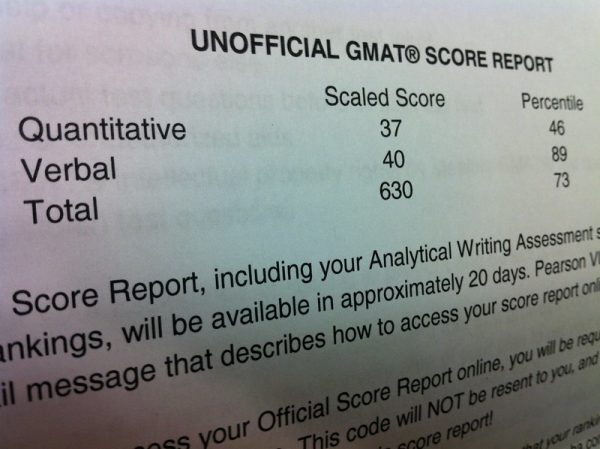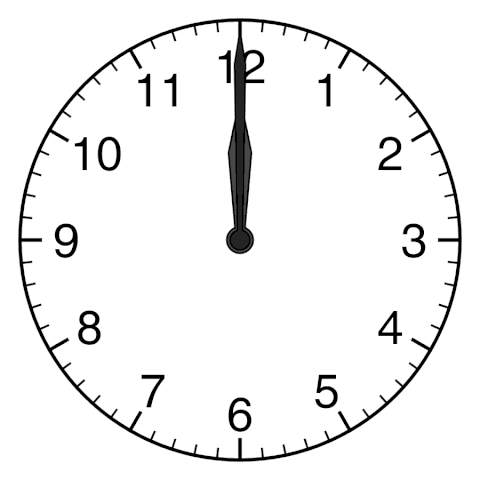
How to Study for the GMAT
Interested in getting a graduate business degree? Then you’ll probably need to take the GMAT. Over 200,000 people take the test each year and business schools heavily rely on it when deciding who to accept and who to reject.
It’s a reliable method of assessing and comparing applicants. Since the GMAT is standardized, schools can use it reliably without worrying about bias or other forms of interference.
What is the GMAT?
 GMAT stands for Graduate Management Admission Test. The test is computerized, but in some testing regions outside North America, there may be paper versions of it. Along with a person’s work experience and academic records, the GMAT factors heavily into an MBA program’s decision on whether or not to accept applicants.
GMAT stands for Graduate Management Admission Test. The test is computerized, but in some testing regions outside North America, there may be paper versions of it. Along with a person’s work experience and academic records, the GMAT factors heavily into an MBA program’s decision on whether or not to accept applicants.
According to www.mba.com, the GMAT has four sections:
- Analytical writing assessment: in this section, you’ll be presented with an argument and you’re supposed to critique it. Your score will be based on your ability to analyze the argument, develop logical ideas, and connect them. Your essay will be graded by a human and a computer system. Your final score will be an average of both
- Integrated reasoning: there are 12 questions in the integrated reasoning section. You’ll be required to analyze tables, interpret graphs, and answer multisource reasoning questions.
- Quantitative: This section tests your mathematical abilities and includes questions in algebra and geometry. It is divided into two types of questions: data sufficiency and problem-solving.
- Verbal: the final section is where your English will be tested. There are three question types under the verbal section: sentence correction, reading comprehension, and critical reasoning.
The GMAT has a computer-adaptive format for its quantitative and verbal sections. This format means that the questions you’re presented with will depend on your level. The first question in each section will be of medium difficulty. What happens next?
- If you get the first question right then the following question will be harder, and so on.
- If you get the first question wrong then the following question will be easier, and so on.
The test adapts to your level to accurately determine it. The main issue here is that you can’t skip or go back to questions. Once a question is answered, there’s no going back and changing the answer.

How Long is the GMAT?
The GMAT isn’t a very long test. According to MBA and Kaplan, it’s a little shorter than three and a half hours. Here’s the breakdown of the sections and their durations:
- Analytical writing assessment: 1 question in 30 minutes
- Integrated reasoning: 12 questions in 30 minutes
- Quantitative reasoning: 31 questions in 62 minutes
- Verbal reasoning: 36 questions in 65 minutes
- Breaks (optional): two 8-minutes breaks (16 minutes total)
When finding out how to prepare for GMAT at home, you should consider time and learn how to pace yourself.
What is a Good GMAT Score?
 Many GMAT preparation online courses talk about how they’ll help you achieve a good or excellent score. So, what counts as a good score on the GMAT?
Many GMAT preparation online courses talk about how they’ll help you achieve a good or excellent score. So, what counts as a good score on the GMAT?
Total GMAT scores are between 200 and 800. There are other methods of scoring, but this is the most popular and the one used by schools.
- The average GMAT score is around 550.
- The top 10% of students score above 700.
- The top 25% of students score above 650.
When judging whether your score is good enough, you need to compare it to the school you wish to apply to. Are you applying to a very competitive business school? If yes, then you’ll want to be in the top 25%.
You should research the schools you’re considering to find out the average scores of the applicants they accept each year. Naturally, if your score is above 700, you’ll have little to worry about.
Your GMAT score report should be available within 5 to 20 days from your test date.
How Long to Study for the GMAT?
 Studying for the GMAT takes about 2-3 months. Factors that need to be taken into consideration before setting a GMAT study guide are your target score, work schedule, and any obligations at home or to other studies.
Studying for the GMAT takes about 2-3 months. Factors that need to be taken into consideration before setting a GMAT study guide are your target score, work schedule, and any obligations at home or to other studies.
The GMAT isn’t a test that you can study for in a couple of weeks then ace. It’s a marathon and takes time along with dedication. Top scorers spend over 120 hours studying for it.
If you divide 120 hours over 2-3 months it’ll equal 2-3 hours of studying per day for 6 days each week. If you’re not aiming for a high score or you have other commitments then you’ll need to adjust accordingly.
How to Study for the GMAT?
There are plenty of GMAT study materials available that knowing which to use can be confusing. Before you begin, it’s recommended that you take a free practice test to determine where you stand. GMAC (the entity that creates and grades GMAT tests) offers two free practice tests that you can take.
The further your practice test score from your target score, the harder you’ll have to work. Another major benefit of the practice test is that it’ll help you determine your weaknesses so you can focus on them.
You should then set a schedule where you determine how long you’ll study each day for of 2-3 months. Studying an hour each day of the week is preferred to studying 2-3 hours for 3 days each week. The more consistent your studying, the better you’ll get.
Study sources:
- GMAT books and self-studying
- Joining a class or course
- Question banks
You should decide between studying on your own using a book or joining a class depending on what works best for you. Question banks are a must and will play a huge role in boosting your score.
A recommended study plan would be to study and solve questions for 1-2 months then solely focus on doing as many questions as possible for another month. The more questions you solve, the more familiar you’ll be with the test and finishing each section on time.

Taking assessments and practice tests every 2-3 weeks is vital to help you determine if you’re improving or not and what your weak points are.
How Long are GMAT Scores Valid?
GMAT scores are valid for 5 years from your test date. This gives applicants time to consider their options, strengthen their background and applications, and decide on what they want before applying for schools.
For graduate school applicants to colleges and universities, your GMAT score can easily become a part of what a school or scholarship considers when awarding scholarships and financial aid. So it is important to take it seriously and focus on hitting a solid score for you!
